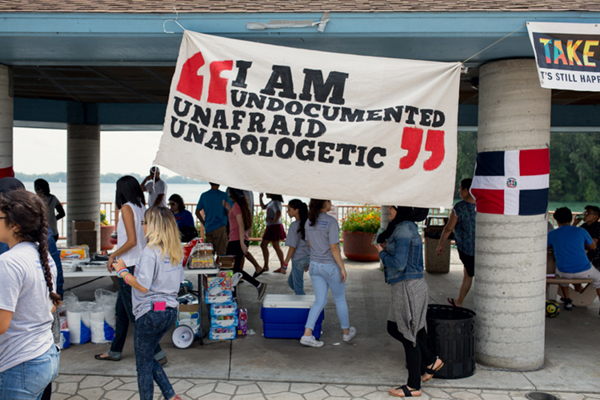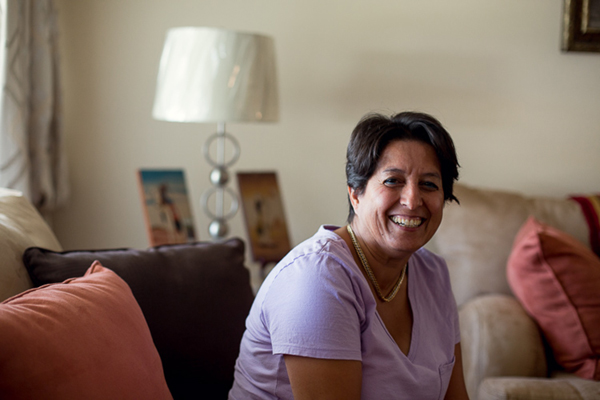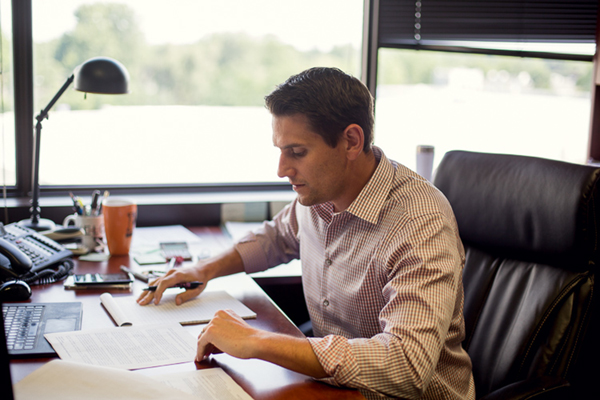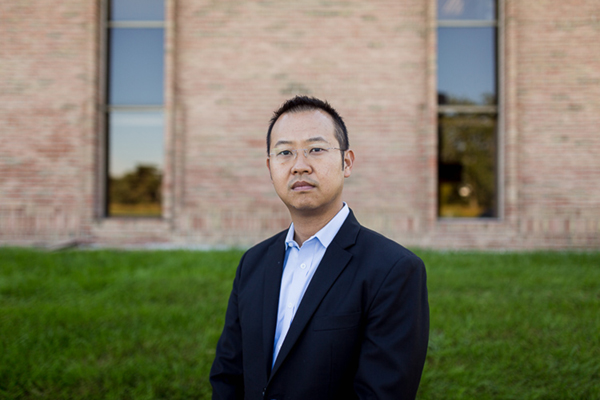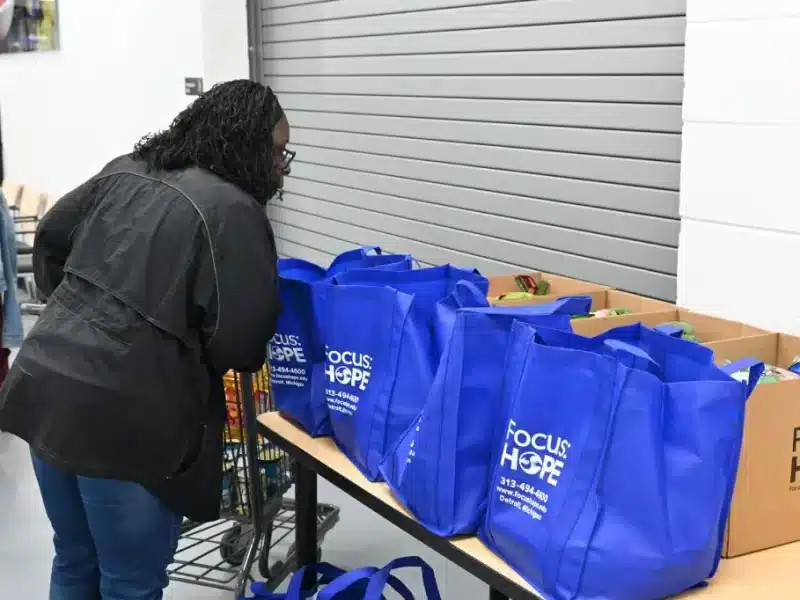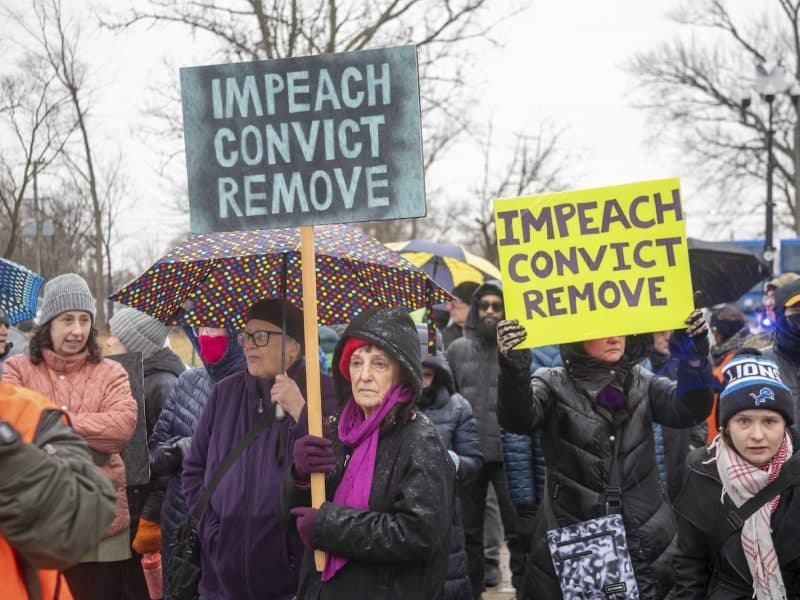A region of opportunity: How Metro Detroit is helping its immigrant population succeed
In the second installment of our series on solutions to regional issues, we explore how cities and community groups are helping Metro Detroit's immigrants overcome the many challenges they face when coming to America.
When Houda Diaconescu immigrated to Dearborn from Algeria in 2001, she didn’t speak any English.
“I couldn’t even say ‘Hi, my name is Houda,'” she recalls.
Diaconescu, trained as an engineer but unable to find work in Algeria, wanted to continue her education in America. But those plans never came to fruition. Between acclimating to a new culture, learning English, and becoming a mother, life was challenging enough. She eventually relocated to Sterling Heights and became a special education teacher.
“The main reason I came here was to get a Master’s. Unfortunately, that never happened,” she says. “But I’m working, making a living, surviving.”
Diaconescu’s story is like so many who have immigrated to Metro Detroit in search of something better, whether it’s security, financial prosperity, or education. The challenges she faced—learning English, acclimating to a new culture, engaging in the community—are nearly universal to newcomers, no matter their country of origin.
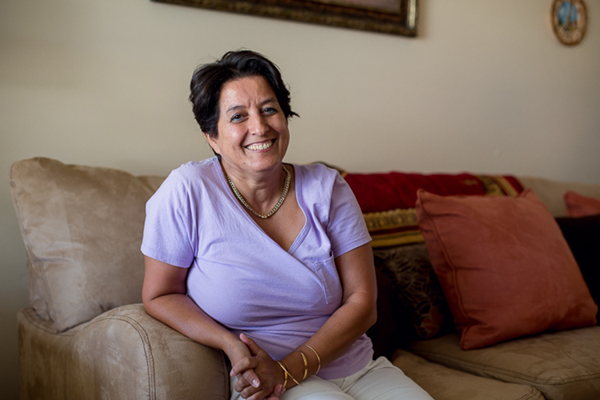
First-generation immigrants are some of the most successful people in America. More often than not, they enter the job market and provide jobs for others as entrepreneurs at a higher rate than their native-born counterparts (SEE SIDEBAR). And that’s despite the many inherent disadvantages they face as newcomers.
Steve Tobocman has been making the case for the economic impact of immigrants since starting Global Detroit in 2009. That year, he authored a 164-page report that assessed how immigrants contribute to the region’s economy.
In the report, Global Detroit put forth a set of strategies Metro Detroit’s governments, businesses, and institutions can take to better secure immigrants’ prosperity—and leverage them as an asset.
Many of these strategies entail greater governmental support. To properly mobilize and address the various needs of immigrants, the report recommends the creation of a Mayor’s Office of Global Affairs, which could work alongside many of the preexisting institutions currently doing the work of supporting immigrants.
In 2014, Detroit launched the Immigration Task Force “to support existing and future immigrant communities.” While their work is still just beginning, earlier this year they announced that the city will offer municipal IDs for people who can’t get a driver’s license. The IDs will enable users to access city services, open a bank account, get a library card, and do many other basic and necessary things they couldn’t previously.
“The immigrant community has made significant contributions and been a strong point in the economy in Southeast Michigan,” says Tobocman. “We have a unique opportunity to revitalize a depopulated, struggling city and a regional economy very much in transition into a new knowledge-based economy. Immigrants have been at the forefront in making those contributions in ways that produce benefits for everyone along the economic ladder.”
Indeed, immigrants can be a stabilizing force in neighborhoods.
“During the Great Recession, Little Baghdad was one area that was booming,” says Welcoming Michigan senior program coordinator Christine Sauve. “There were vacant commercial properties everywhere, but that area was flourishing. Immigrants have real effects on the vibrancy of a community.”
Tobocman argues that immigrants can also help revive struggling regions through an infusion of people that bring their own vibrant culture while growing the tax base.
“No American city has rebounded its population without immigration growth,” he says.
Helping immigrants to be successful is critical to making sure that vibrancy is sustained in Metro Detroit. Here are three areas where governments and community organizations are stepping in.
1. Acclimation: Helping immigrants adjust to a new identity
Coming to a foreign land, especially if the arrival takes place amidst traumatic circumstances, presents many challenges. Finding a community of individuals with similar backgrounds, who have been through similar transitions before and can help with practical and emotional support, is crucial for immigrants to adapt.
Dr. Sook Wilkinson has witnessed this challenge firsthand as a clinical psychologist and faced it personally when she immigrated to America from South Korea in 1970. She also recently co-edited a book of essays written by Asian immigrants to Michigan, many of whom describe another issue in the transition to a foreign land.
“You get cut off from everything that’s familiar to you and lose the identity you had before,” says Dr. Wilkinson.
In many close-knit immigrant communities, seeking the help of an outsider is not considered an option. And few doctors speak their native language.
“First generation immigrants would only come to me when they couldn’t go on any longer,” she says. “In many communities, seeing a psychologist for treatment is not looked upon favorably.”

As a result, much of the work of helping immigrants transition to life in America falls on nonprofits and volunteers.
As outreach coordinator for Samaritas, a social ministry affiliated with the Lutheran church, one of Pastor Ken Fouty’s primary duties is refugee resettlement. He helps newcomers during an intense 90-day resettlement period when they must have their kids enrolled in school, get social security cards, medical assessment, state identification, start looking for a job, and more. The goal is to have them be self-sufficient at the end of those 90 days.
Almost always, they are.
“They’re determined,” says Fouty. “It takes three years just to go through the process, to be given that refugee status and brought into U.S. through the State Department. So when they do get here, they work hard to knock everything off that checklist.”
Self-sufficiency often extends far into the future for those Samaritas helps.
“Within two years, we usually find all our clients are off government assistance and dependent for themselves,” says Fouty. “They have a very high success rate as far as getting employed and maintaining a job.”
ACCESS plays a similar role for Dearborn’s Arab American immigrant population. Their eight locations offer a range of services for employment, entrepreneurship, STD screenings and other medical services. They also offer classes on cultural competency, citizenship, digital literacy, and much more.
2. Learning English: Helping immigrants navigate their new country
The practicalities of life don’t just halt while you’re trying to understand yourself and your new country. The vast majority of immigrants still have to learn English, often from scratch. And without English, navigating the bureaucratic labyrinths of getting a green card, driver’s license, or any other legal necessity are impossible to do alone. Even simple tasks like grocery shopping and filling out a job application become daunting.
“If you do not speak the language, you cannot be independent,” says Diaconescu. “It doesn’t matter how much money you have or how nice your car is. If you can’t speak the language, you can’t do even basic things.”
Unfortunately, this is one of our region’s greatest unaddressed needs for immigrants. Wayne State University offers an intensive English as a Second Language (ESL) course, but it’s prohibitively expensive for most.
ACCESS, and other organizations like it, offers ESL classes. Some libraries and public schools have recognized this need, too. Diaconescu took advantage of Livonia Public School’s ESL classes for adults, attending almost every weekday when she first arrived. She now speaks fluent English, and even tutors other immigrants.
But these services are often not enough.
“There’s definitely a shortage of ESL classes,” says Sauve. “Sometimes it’s because of a mismatch with when and where it’s available and lack of transit. In general, classes are almost always full.”
Models exist in other cities for how municipalities can assist. In 1998, Boston created the Office for New Bostonians (now the Office of Immigrant Advancement), and one of its duties remains increasing ESL options and capacities, reducing waitlists, and maintaining a directory of institutions and companies that offer classes (currently, 56 locations).
3. Civic Engagement: Helping immigrants become a part of the community
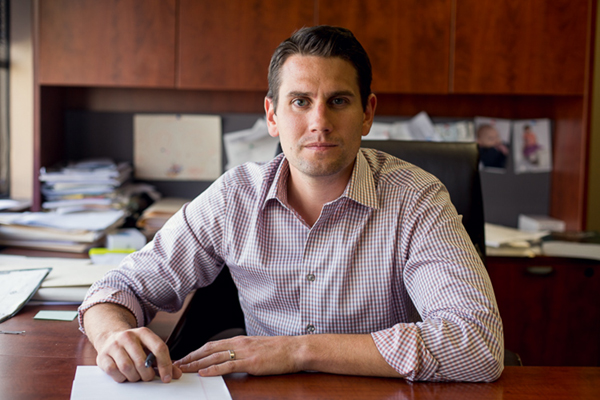
A major task of Welcoming Michigan is improving relations between immigrants and established citizens through “welcoming” events and meetups. The goal is to reduce bias and make immigrants feel more accepted.
Sauve cites many examples of the kind of goodwill these events can engender, like when Morse Elementary School in Troy, partnering with Samaritas, organized a welcoming day for two refugee families relocating to the area. Attendees brought food for a potluck, had the families tell their stories of coming to America, and collected money to help them get started. It brought everyone in the community closer together.
“The Mayor and Superintendent and a lot of city officials were there. Lots of family and students,” says Fouty. “It was a great opportunity for us to inform more people and tell stories. When you hear about what folks go through and what it’s like to move to a place where you don’t have to worry about personal safety anymore, it’s transforming.”
Sauve identifies Sterling Heights as a city that’s been particularly welcoming to immigrants. Like Tobocman, Sterling Heights Mayor Michael Taylor sees the value of immigrants to his city.
“When you have a community of people from different cultures and backgrounds you learn a lot more about the world,” says Taylor. “It makes life more enriching, in same way that good literature or art is enriching.”
Sterling Heights, and Macomb County generally, has been proactive by investing in remote video interpretation for people of limited English proficiency.
“It’s definitely a challenge to provide services to people who aren’t used to receiving them,” says Taylor. “It’s a challenge to communicate with them, inform them about our regulations and ordinances. We’re doing everything we can to figure out new ways to reach these populations.”
Exacerbating this problem is that many immigrants feel disconnected from the political process, in part because there aren’t a proportional number of leaders that represent them. To take one metric as an example, naturalized citizens vote at a lower percentage, 10 percent or greater, than their native counterparts. And while there are some notable second generation politicians in Michigan, like Rashida Tlaib, an Arab-American member of Michigan’s House of Representatives, and Raquel Castañeda-López, the first Latina voted to Detroit’s City Council, first generation politicians are rare.
Eric Chau, who immigrated from Hong Kong to Metro Detroit when he was 12, is working to counteract this disparity. He became a board member for the Asian and Pacific Islander American Vote of Michigan to increase political awareness amongst immigrants.
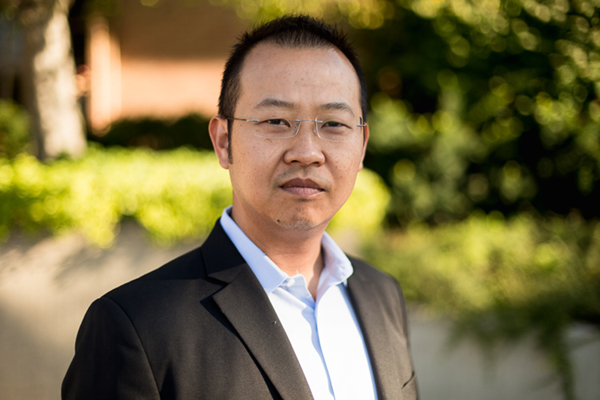
Chau majored in civil engineering at the University of Michigan, but left that field as he got older and more confident. He eventually worked his way up to become the first Asian branch manager for Wells Fargo, then started his own financial services business.
While Chau leads his own company, he finds that the Asian American community, in general, lacks leadership.
“I think the challenge is getting younger professionals involved,” says Chau. “Making sure there’s help available to advance their careers, to make connections, and let them know that we’re here.”
He also gives talks and mentors young Asian professionals in leadership skills and advancing their career. He’s helping put together an event in October through the B3 (build, believe, breakthrough) Program for professional development and peer networking among Asian Americans.
“For us to really have a say, we need to make sure we are heard,” says Chau.
All photos by Nick Hagen.
This piece is part of a solutions journalism series on Metro Detroit’s regional issues, conducted in partnership with Metro Matters and guided by our Emerging Leaders Board.
This work is funded by the Community Foundation for Southeast Michigan. You can view other pieces in this series here.
